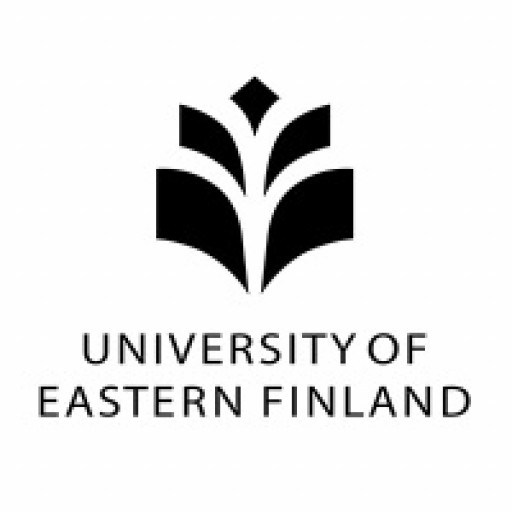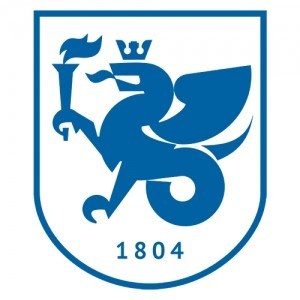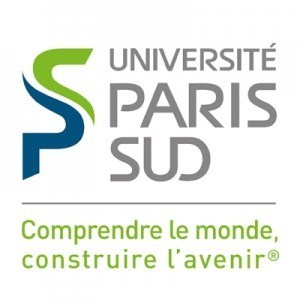Photos of university / #cambridgeuniversity
Physics at the University of Cambridge offers an exceptional undergraduate education, combining rigorous academic training with access to world-leading research facilities and a rich historical tradition of scientific discovery. This three-year Bachelors of Arts (BA) degree provides students with a comprehensive understanding of the fundamental principles governing the universe, from classical mechanics to quantum physics, and from electromagnetism to modern astrophysics. The curriculum is designed to develop both theoretical knowledge and practical skills, including experimental techniques, data analysis, and mathematical modelling. Students will engage with a broad range of topics in the first year, establishing a solid foundation in physics and associated mathematical methods. As they progress into the second and third years, they have the opportunity to specialise in areas such as condensed matter physics, astrophysics, particle physics, or theoretical physics, tailoring their studies to their interests and career aspirations.
Cambridge’s Physics course emphasizes an investigative approach, encouraging students to develop critical thinking and problem-solving abilities through laboratory work, project-based learning, and independent research. The department is renowned for its vibrant academic community, with lecturers and researchers who are at the forefront of scientific advancement. Undergraduate students benefit from close supervision and mentorship, as well as access to state-of-the-art laboratories and observatories. The college system at Cambridge fosters a supportive environment, promoting intellectual collaboration and personal development.
Graduates of the Physics program are well-prepared for diverse careers in academia, industry, finance, data science, engineering, and science communication. Many alumni continue into postgraduate study, contributing to groundbreaking research in physics and related fields. The university’s extensive network and reputation provide a valuable platform for professional growth and international opportunities. Overall, studying Physics at Cambridge offers an inspiring educational experience, blending tradition with innovation, and nurturing the next generation of scientific leaders.
The MPhil in Physics is a 12-month full-time programme and involves minimal formal teaching. Students are expected to attend the Department’s programme of research seminars and other graduate courses but most research training is provided within the group structure and overseen by their Supervisor. Informal opportunities to develop research skills also exist through mentoring and other opportunities offered by fellow students and members of staff.
| One to one supervision |
The supervisory team consists of the Principal Supervisor (normally referred to as the Supervisor) and sometimes an Adviser. The Supervisor is the main person appointed to oversee and help with a student's programme of study and an Adviser is appointed to act as a second point of contact for academic advice. The University of Cambridge publishes an annual Code of Practice which sets out the University’s expectations regarding supervision |
|---|---|
| Seminars & classes |
Students will be advised by their Supervisor which seminars and classes to attend based on their relevance to |
| Lectures |
Students will be advised by their Supervisor which lectures to attend based on their relevance to the chosen
|
| Journal clubs |
Students will be advised by their Supervisor which journal clubs to attend based on their relevance to the |
| Posters |
The Cavendish Graduate Student Conference is held annually, organised by graduate students, and is a one-day event of talks and poster presentations by graduate students from all research groups. |
Feedback
Supervisors report termly on the progress of their students and these reports are available to the student.
Graduate students are represented on the Department's Graduate Student Consultative Committee, which normally meets five times a year, and consists of one or more student representatives from each of the research groups. The Committee exists to enable discussion of any issue affecting graduate students and students may approach any member of the Committee to suggest items for discussion.
Assessment
Thesis
The scheme of examination for the MPhil in Physics consists of a thesis, of not more than 15,000 words in length, exclusive of tables, footnotes, bibliography, and appendices, on a subject approved by the Degree Committee for the Faculty of Physics and Chemistry. The examination includes an oral examination on the thesis and on the general field of knowledge within which it falls. The thesis provides evidence to satisfy the Examiners that a candidate can design and carry out investigations, assess and interpret the results obtained, and place the work in the wider perspectives of the subject.
- Magistr (Master's Degree) at Pass level. Diploma Specialista (completed post-1991) with a minimum overall grade of good or 4/5 Bachelor's from Moscow Institute of Physics and Technology and other prestigious institutions with an overall grade of 4/5 Bologna Bachelor's from other institutions with an overall grade of 5/5, Excellent
- Diploma Specialista (completed post-1991) with a minimum overall grade of Excellent or 5/5 Bachelor's from Moscow Institute of Physics and Technology and other prestigious institutions with an overall grade of 5/5
- IELTS (Academic) 7.0
- TOEFL Internet Score 100
- £50 application fee
- First Academic Reference
- Second Academic Reference
- Transcript
- Personal Reference.
Funding options for the Physics undergraduate program at the University of Cambridge are diverse and designed to support students throughout their studies. The university offers a range of scholarships, bursaries, and financial aid packages to help alleviate the cost of tuition and living expenses. Many of these awards are merit-based, recognizing academic excellence, while others are need-based, aimed at supporting students from lower-income backgrounds. Prospective students are encouraged to explore the main university scholarships page and departmental-specific awards, such as those provided by the Department of Physics. Additionally, students can apply for external funding sources, including government grants, national scholarships, and private bursaries. Cambridge also provides support through the Cambridge Bursary Scheme, which offers financial assistance to UK students from lower-income households. International students may have access to specific scholarships and funding options, such as the Cambridge Trust Scholarships, which are highly competitive and cover tuition fees and living costs. Part-time work opportunities are available on campus, allowing students to earn income during their studies. Students are also advised to consider student loans, which can be used to fund their education, and to seek advice from the university’s financial aid office for personalized guidance. Moreover, the university’s dedicated financial support services provide advice on managing finances and applying for various funding sources. Since the cost of study includes tuition, accommodation, and personal expenses, students should plan their finances accordingly and take advantage of the comprehensive support offered by the university. Overall, Cambridge’s funding framework is designed to ensure that talented students can pursue their passion for physics without financial barriers, fostering a diverse and vibrant academic community.
The Physics undergraduate program at the University of Cambridge is a rigorous and comprehensive course designed to provide students with a profound understanding of the fundamental principles that govern the universe. The program typically spans three years for the Bachelor of Arts (BA) degree, with options to continue to postgraduate studies. Students begin their studies with core modules that cover classical mechanics, electromagnetism, thermodynamics, and wave theory, establishing a solid foundation in physics. As they progress, they have the opportunity to specialize in areas such as quantum mechanics, condensed matter physics, astrophysics, or particle physics, among others.
The University of Cambridge's Physics program emphasizes both theoretical knowledge and practical skills. Laboratory work and experimental techniques are integral parts of the curriculum, allowing students to gain hands-on experience with modern instruments and data analysis methods. This combination ensures graduates are well-prepared for careers in research, industry, or further academic study. The program's teaching is delivered through a combination of lectures, supervisions, and independent project work, fostering critical thinking, problem-solving, and research skills.
Students benefit from the university's strong research culture, with access to world-class facilities such as the Cavendish Laboratory and collaborations with leading scientists. The program encourages participation in research projects, summer internships, and conferences, enhancing their academic and professional development. Cambridge’s distinctive supervision system offers personalized guidance, ensuring students receive tailored support that helps develop their understanding and analytical abilities.
The curriculum also includes optional modules allowing students to explore interdisciplinary themes related to physics, such as computational physics, biophysics, or environmental physics. The university's supportive academic community and extensive resources create a stimulating environment conducive to intellectual growth.
Graduates of the Physics program at Cambridge often pursue careers in academia, research institutions, technology companies, finance, or consultancy. Many continue their studies with postgraduate research degrees, including MSc, MPhil, or PhD programs, both at Cambridge and internationally. The program's reputation and rigorous training make Cambridge Physics graduates highly competitive in their chosen fields.
Overall, the Cambridge Physics undergraduate program is designed to develop highly skilled physicists capable of tackling complex scientific questions and contributing significantly to advancements in science and technology. The combination of strong theoretical foundations, practical experience, research opportunities, and personalized teaching ensures students are well-equipped for future challenges and success in diverse career paths.










